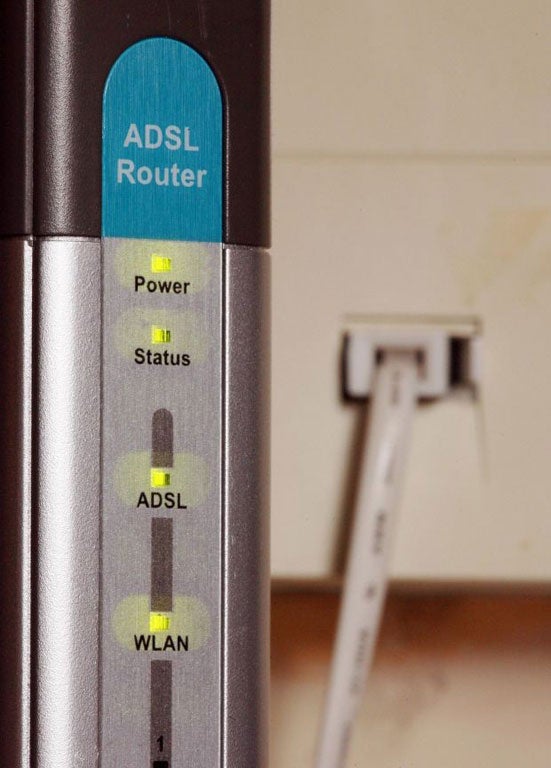Evening internet 'rush-hour' affects Broadband users

Broadband download speeds in the UK drop by an average of 35% during the evening internet "rush-hour" as millions of technology-users flock online, according to new research.
The study, which analysed data from two million broadband speed tests across Britain, revealed a massive fluctuation in surfing speeds during peak and off-peak times.
Those who navigate the web during the the morning hours of 2am and 3am experience the quickest download times, with a fastest average download speed of 9.6Mb/s, analysts found.
While those who surf the web between 7-9pm - the peak period when most people go online - faced the slowest times, with average speeds dropping by a third to 6.2Mb/s.
The data, published by comparison site uSwitch, also uncovered huge regional variations in peak and off-peak speeds.
Internet users in Evesham, Worcestershire, experienced a massive 69% drop, with an average morning download reading of 15.5Mb/s, falling to 4.9Mb/s in the evening.
Weston-Super-Mare in Somerset saw a 64% drop with off-peak times plunging from 9.5Mb/s to 3.4Mb/s during peak hours.
While in Wadebridge, Cornwall, web users were faced with relatively limp off peak speeds of 4.1Mb/s, which halved to just 2.1Mb/s in the evening.
USwitch technology expert Ernest Doku said only a small number of internet users are consistently enjoying the maximum headline broadband speeds offered by providers.
"It really is surprising just how much broadband speeds fluctuate at different times of the day, with drop-offs of almost 70% in some areas of the UK," he said.
"This research may help to shed some light on why many bewildered consumers, who believe they've signed up to a certain broadband speed, never actually feel like their connection is fast enough.
"Although providers are working hard to upgrade the UK's broadband infrastructure, there is a long road ahead to ensure that everyone can enjoy a much more consistent service."
Mr Doku advised broadband users to perform an online broadband speed test to ensure they are getting the best possible package for their area.
Join our commenting forum
Join thought-provoking conversations, follow other Independent readers and see their replies
0Comments